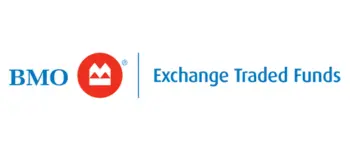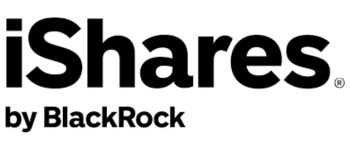The Foundation of a Long-Term Portfolio: Canadian Index Funds
Key takeaways
Income-Focused and US Market Access – CDZ is ideal for dividend investors, while XUU provides diversification by tracking the broad U.S. stock market.
Broad Market Exposure – ZCN and XIC provide exposure to the entire Canadian stock market, while XIU focuses on the 60 largest companies.
Sector-Specific and Growth-Oriented Options – XIT offers targeted exposure to Canada’s tech sector, which has historically outperformed other sectors.
One ETF I like way better than the ones on this list.Many beginner investors find it a bit overwhelming researching and purchasing individual stocks. The market is stuffed full of them, and the vast majority of them are poor quality and will underperform the broader markets over the long-term.
As a result, many turn to index investing as a set and forget alternative. In this article, I’m going to go over some of the top index funds available in Canada today so that you can get started.
First, a bit of education.
What is index investing, and why should we buy Canadian index funds?
Simply put, index investing is a passive strategy that attempts to replicate the returns of a particular market index.
By market index, I mean the TSX, S&P 500, NASDAQ, or any other broad market index that holds a large basket of underlying stocks.
This is done by purchasing Canadian exchange-traded funds (ETFs) or mutual funds built to track the underlying index closely. It is also one of the most effective ways to diversify your holdings. They’re available on practically every trading platform and brokerage.
I will speak on Index ETFs only for this article, as they are typically more beneficial than mutual funds, especially on a passive indexing level.
Index investing is one of the most straightforward investing strategies and one that financial gurus recommend. Don’t take my word for it though. Lets see what they have to say.
Here is what some of the most well-respected gurus have had to say when it comes to index funds
“By periodically investing in an index fund, for example, the know-nothing investor can outperform most investment professionals. Paradoxically, when ‘dumb’ money acknowledges its limitations, it ceases to be dumb.” – Warren Buffett
“The word passive does a disservice to investors considering their options. Indexing provides an effective means of owning the market and allows investors to participate in the returns of a basket of stocks. The basket of stocks changes over time as stocks are added or removed based on its rules.” – Charles R. Schwab
This article will cover the top Canadian index funds
By that, I mean this article will go over Canadian ETFs that are tracking Canadian indexes. This means it will not include anything related to the S&P 500, NASDAQ, or the international markets.
However, for those who insist, I have included one broad based US index fund at the end of this article.
Let’s dive right into it.
What are the top Canadian index funds to buy right now?
- BMO S&P/TSX Capped Composite Index ETF (TSX:ZCN)
- iShares Core S&P/TSX Capped Composite Index ETF (TSX:XIC)
- iShares S&P/TSX 60 Index ETF (TSX:XIU)
- S&P/TSX Canadian Dividend Aristocrats Index Fund (TSX:CDZ)
- iShares S&P/TSX Capped Info Tech ETF (TSX:XIT)
- iShares Core S&P US Total Market Index ETF (TSX:XUU)
Broad exposure to Canadian equities
BMO S&P/TSX Capped Composite Index ETF (TSX:ZCN) & iShares Core S&P/TSX Capped Composite Index ETF (TSX:XIC)

ZCN tracks the S&P/TSX Capped Composite Index, offering exposure to nearly all publicly traded Canadian companies. It provides diversified exposure across sectors, making it a strong core holding for investors looking for Canadian market representation.
Similar to ZCN, with a strong track record
iShares Core S&P/TSX Capped Composite Index ETF (TSX:XIC)

XIC tracks the same Canadian index as ZCN, providing nearly identical exposure to the entire TSX market. It is a solid core holding with a low expense ratio and a strong history of performance.
Canada’s largest and most liquid ETF
iShares S&P/TSX 60 Index ETF (TSX:XIU)

XIU focuses on the 60 largest Canadian companies, making it more concentrated than ZCN and XIC. It is one of the most traded ETFs in Canada and is known for its stability and liquidity.
Dividend growth investing in Canada
S&P/TSX Canadian Dividend Aristocrats Index Fund (TSX:CDZ)

CDZ tracks the S&P/TSX Canadian Dividend Aristocrats Index, focusing on companies with a history of increasing dividends. It appeals to income-focused investors looking for stable cash flow.
Canada’s top tech ETF
iShares S&P/TSX Capped Info Tech ETF (TSX:XIT)

XIT provides targeted exposure to Canada’s technology sector, focusing on key companies like Shopify, Constellation Software, and CGI.
Diversified U.S. stock market exposure
iShares Core S&P US Total Market Index ETF (TSX:XUU)

XUU tracks the S&P U.S. Total Market Index, providing exposure to the entire U.S. stock market. It’s an excellent way for Canadian investors to diversify internationally.
Canadian index funds can remove emotions from investing
Research has shown that retail investors consistently underperform the markets. Most hedge funds do as well. At the heart of the issue for retail investors – is emotions.
Index funds are a passive investing approach that can take emotion out of the equation, as investors don’t get emotionally attached to any particular stock or company.
As values change in prices on individual stocks, it can cause stress and emotional panic selling. With an index fund, your concentration risk is reduced significantly because you own a basket of hundreds, sometimes thousands of companies.
Can indexes crash as well? Absolutely they can. But often individual equities can expose you to larger drawdowns and also lower chances of recovery. A broader market index has almost a 100% chance of recovery from a crash, at least if we look to the last 100+ years of data.
Individual stocks are never guaranteed to recover, as they pose much larger concentration risk. This is something to keep in mind as an individual investor.
